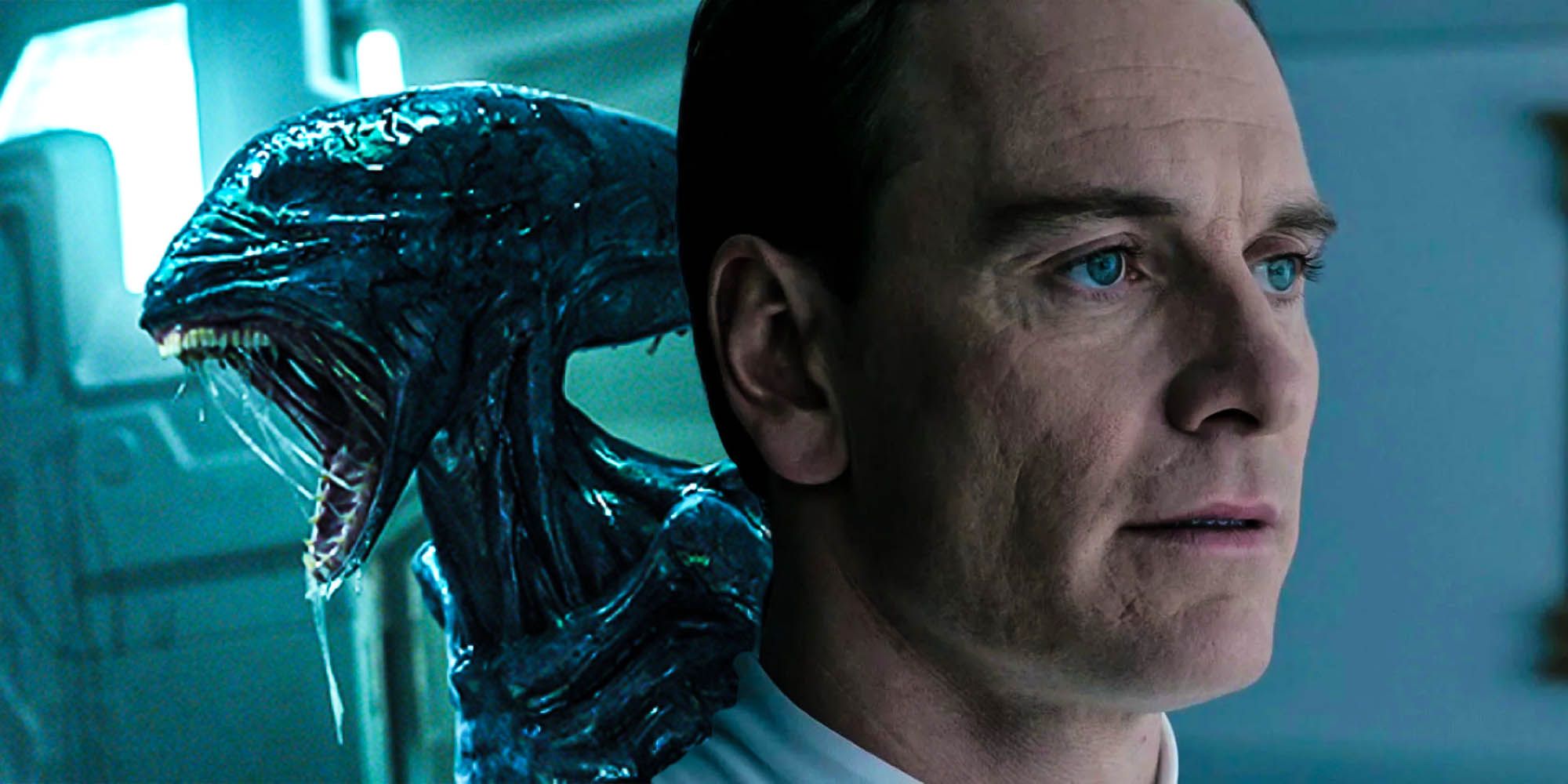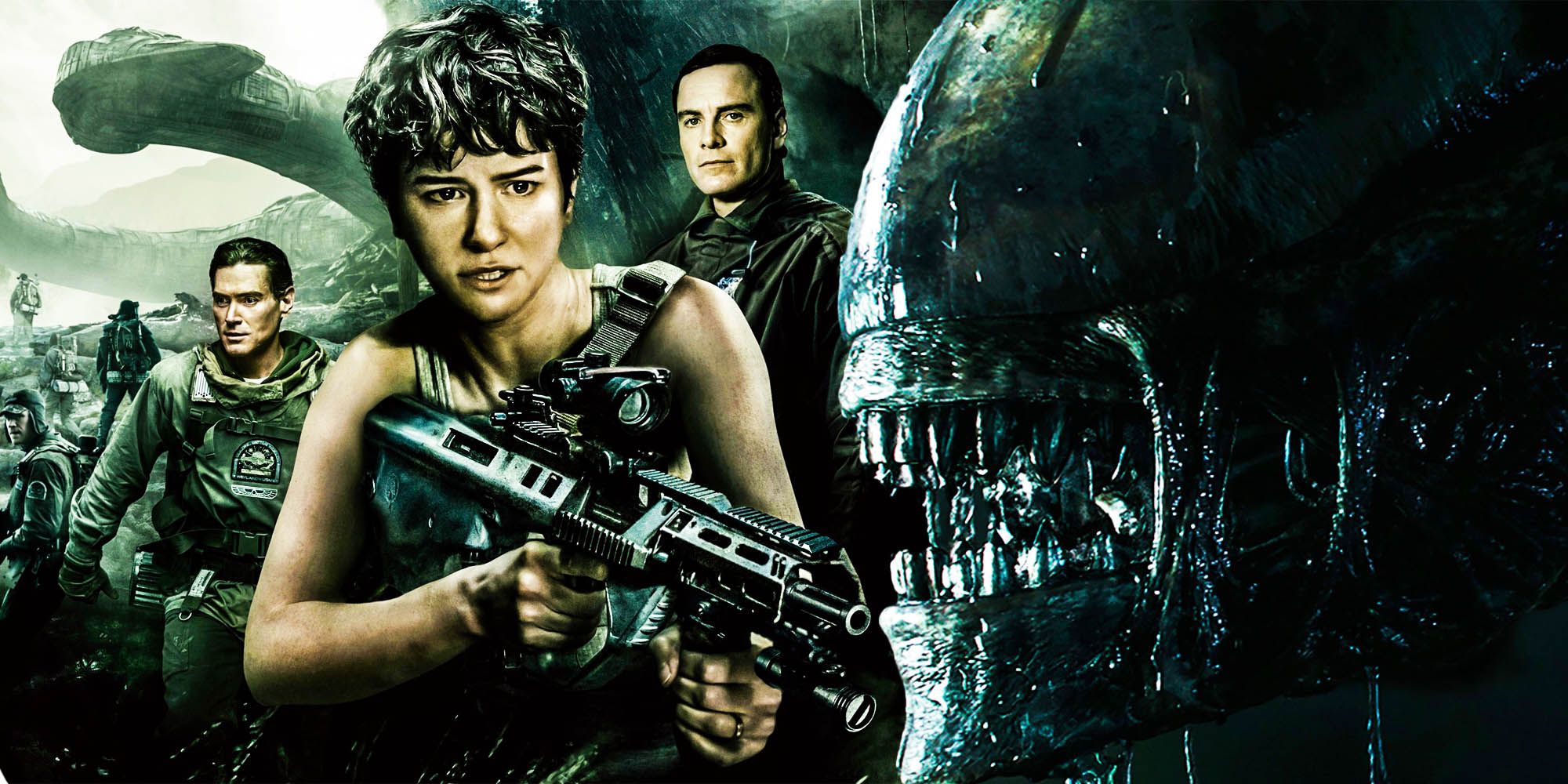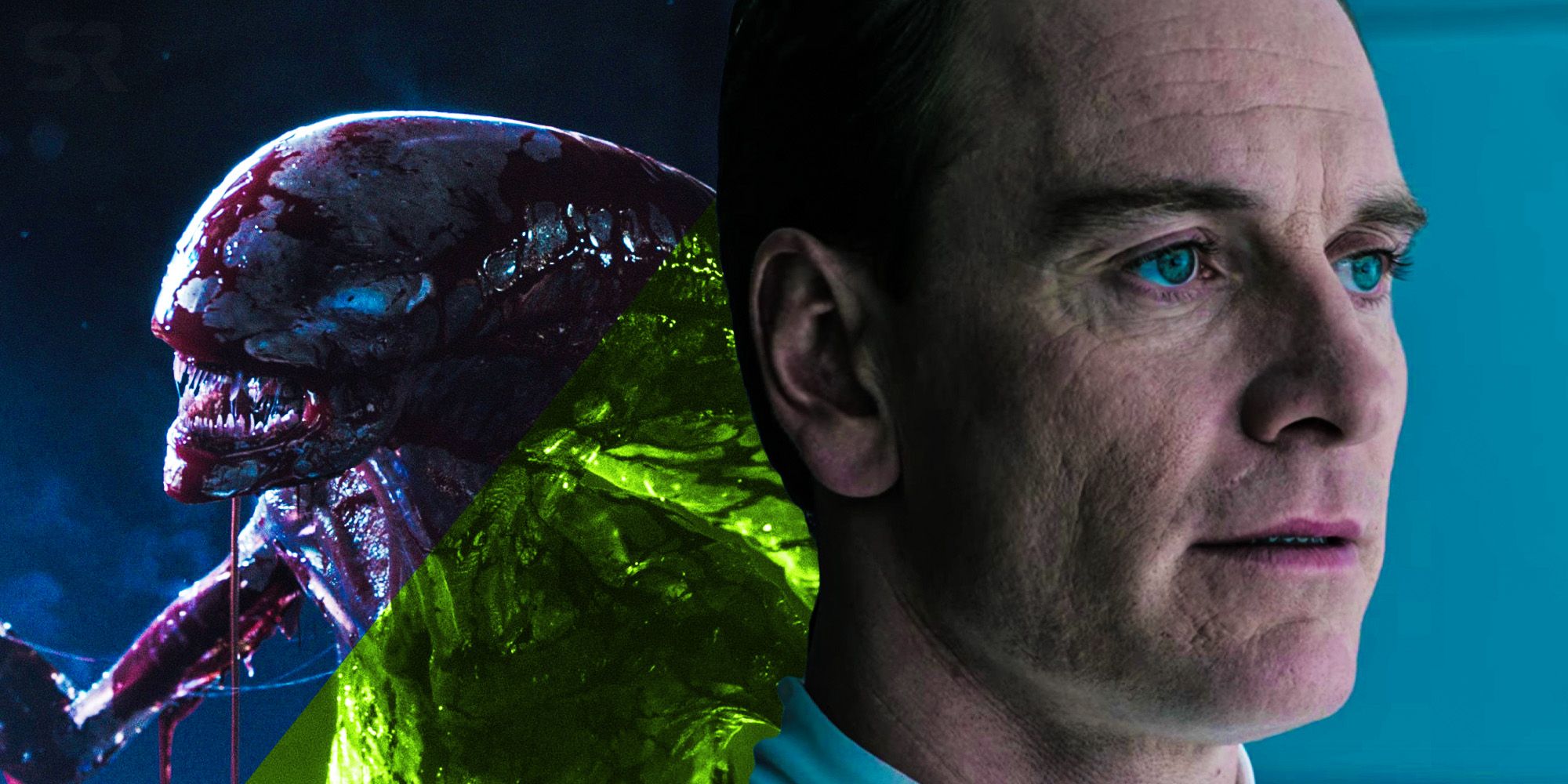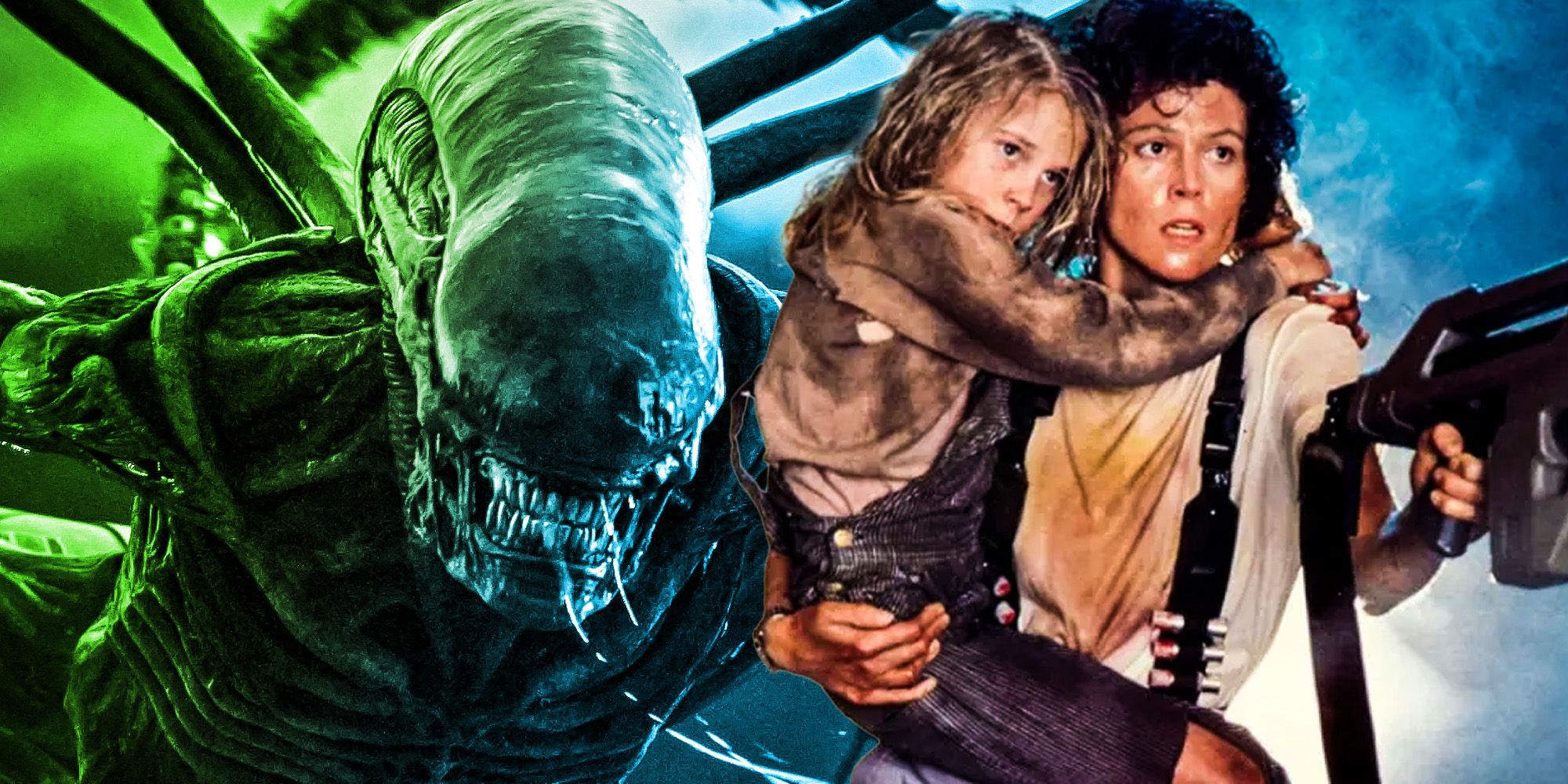
It’s looking less and less likely that Ridley Scott will helm another Alien prequel, but fortunately, Alien: Covenant could still receive a follow-up in the form of a limited series. Despite starting strong, the Alien franchise has struggled to find its feet with critics over the last few decades. The original Alien, a brutal and brilliant “haunted house in space” sci-fi horror, and its more action-forward sequel Aliens are beloved by viewers and critics alike, often still held up as classics of the sub-genre.
However, the horror-focused Alien 3 was too dark for many, and its follow-up Alien: Resurrection was too uneven, leaving critics frustrated with the once-promising franchise. Since then, original Alien director Ridley Scott returned for 2012’s Prometheus, a prequel that explored the origins of the franchise in detail. However, this effort warranted a cold response by many thanks to its slow pace and excessive focus on familiar world-building.
Scott’s second prequel, Alien: Covenant, wisely dropped the mythology and pseudo-philosophy in favor of a more brutal atmosphere and faster pace, and the 2017 release was well-liked as a result. That said, five years elapsed between the two outings and, although Alien: Covenant was the better Alien prequel, fans were hardly clamoring for a return to its world. The reception of the prequel series was mixed at best, meaning the odds of a third Alien prequel movie happening are slim. However, Scott mounting an event miniseries to wrap up the story of Michael Fassbender's David and how it ties into the original Alien would garner interest and would be a less risky investment to boot. Scott’s recent critical success with Raised By Wolves also shows the television miniseries format is probably better for the type of story he wants to explore, and with a longer runtime and more immersive atmosphere, the infamous Xenomorph could appear without being the sole focus of the plot.

Alien: Covenant managed to outdo the dark ending of Prometheus with the bleakest coda of the series so far — an impressive achievement, considering how brutal Alien 3’s finale is. As Katherine Waterston’s heroine Daniels is placed into hyper-sleep by her robot helper, she realizes that the Fassbender-faced android is not friendly Walter at all, but instead the lethally ambitious David. The switch occurred via an entirely unlikely plot hole, but that’s not the worst of the ending’s action. As outlined earlier in the outing, David’s Alien: Covenant master plan is to use his genetically engineered Neomorphs to wipe out entire planets solely to satisfy his God complex, using the heroine and everyone else aboard her ship as unknowing incubators for his grisly Xenomorph cross-breed creations. As Daniels is incapacitated, she is unable to stop this plot and, judging by the movie’s blackly comic closing moments, David’s plan goes off without a hitch — thus dooming an untold number of planets and their populations.

Although Alien: Covenant was no flop and fared fine with critics, the sequel’s reception with a textbook example of an unnecessary franchise installment receiving middling responses from viewers and reviewers. The movie’s tepid box office and the general lack of excitement for another movie are but two reasons that it is too late for an Alien: Covenant sequel, while Fargo showrunner Noah Hawley’s recently announced Alien television series is a more exciting prospect that further diminished the likelihood of another theatrically released prequel for the franchise. However, this television series may also be evidence that Alien: Covenant can still receive a follow-up, albeit one limited to the small screen.
The fact that Neill Blomkamp’s canceled Alien 5 never saw the light of day proves that even a direct sequel to the series is unable to muster sufficient excitement despite promising to retcon the much-maligned Alien 3 and bring back Ripley. Thus, there is no chance that the comparatively middle-of-the-road Alien prequels will earn a sequel when their plot is less immediately compelling than Blomkamp’s proposed Alien 5 and requires viewers to invest in characters who have been absent from the big screen for over four years already. However, a smaller-scale television miniseries would be a different proposition.

One major flaw of the Alien prequels is that both movies attempt to fit too much material into a slim runtime, whether it is Prometheus trying to outline the very origins of the universe or the less ambitious but still overstuffed Alien: Covenant failing to make sense of David’s ambitions within the movie’s compressed runtime. As such, a 6-to-8 episode miniseries could cover a lot of ground, from more exploration of the Engineers to catching up with David to how it all connects to the roots of the Alien series at large. Currently, David’s motivations for wiping out the Engineers upon arriving on their home planet is as unclear as to the reason the Engineers wanted to create Xenomorphs and humanity, both of which are teased but never explored in-depth by the prequel movies.
An Alien prequel miniseries would also allow the franchise to do justice to one of its most underrated figures, Noomi Rapace’s Elizabeth Shaw. Last seen unceremoniously vivisected by David sometime between movies, Shaw was a resourceful heroine whose quick thinking and scientific acumen rivaled the original heroine of the series, Sigourney Weaver’s iconic Ripley. However, while fan debate still rages about Ripley’s death, there is no denying that the brutal fate of Prometheus’ Shaw was a waste of a compelling character and a cheap shock tactic that did little to elevate Alien: Covenant. A miniseries that fleshes her character out in more detail while also leaving viewers uncomfortably aware of her eventual, inevitable fate would be a brilliant way to reverse this unfortunate twist, keeping Shaw’s death but adding an element of real pathos to the otherwise pointless surprise. Between exploring Shaw’s character, expanding on David’s plan, and explaining the origins and purpose of the Engineers, there is plenty of ideas for an Alien: Covenant sequel to explore — provided it does so on the small screen.
from TechCrunch https://ift.tt/3vlFyOc
via IFTTT
Comments
Post a Comment